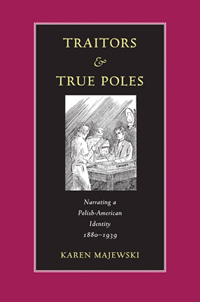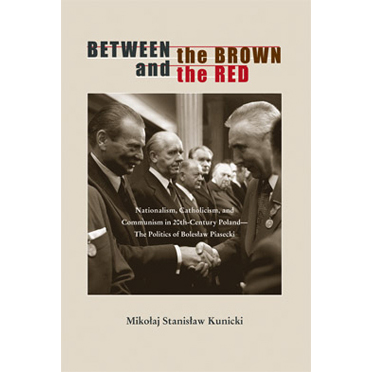 Two Novellas of Emigration and Exile
Two Novellas of Emigration and Exile
By Danuta Mostwin
Translated from Polish by Marta Erdman and Nina Dyke.
Ohio University Press, 136 p.
CR recently came across two marvelous novellas by Polish American author Danuta Mostwin in a single volume, Testaments: Two Novellas of Emigration and Exile, published by Ohio University Press. Beautifully translated by Marta Erdman and Nina Dyke, the novellas are multi-faceted, well polished, and expertly set little gems that illuminate complex characters struggling with lives altered by circumstances, the psychological changes imposed by dislocation and loneliness, and the philosophical reflections prompted by their fate.
Mostwin is a sociologist, a political exile who specialized in the study of Polish immigrant families. Although she lived and taught in America since the 1950s, Mostwin wrote in Polish, and her fiction has been unavailable to the English reader. We have been truly deprived.
At last a long overdue translation introduces us to unforgettable characters and emotional pain made bearable by the essential lightness of charm. In The Last Will of Blaise Twardowski the reader is drawn into the unlikely friendship between Twardowski and the intellectual émigré, Jan Wieniawski, and anxiously – and not without bias — awaits to see who will be the beneficiary of Twardowski’s will.
The other story, Jocasta, is a searing tragedy of madness, madness as metaphor of the exile’s loss, of homelessness. “No one who was not “one of us” could ever know us fully, because only one-half of our very selves ever showed – the other was kept in a shadow… It takes time to get acquainted with one’s own duality. Sometimes it was possible to ignore it, to hide it, or even to triumph over it, but occasionally a searing flare-up of madness would sweep away all reason.”
Splendid fiction, with an incisive commentary by Thomas J. Napierkowski. A must read.
 Among other titles in the Polish and Polish-American Studies Series published by Ohio University Press noted by CR were two that were published some years ago but, since it’s unlikely they were ever reviewed in your local daily, we draw your attention to them now.
Among other titles in the Polish and Polish-American Studies Series published by Ohio University Press noted by CR were two that were published some years ago but, since it’s unlikely they were ever reviewed in your local daily, we draw your attention to them now.
The Exile Mission: The Polish Political Diaspora and Polish Americans, 1939–1956
By Anna D. Jaroszyńska-Kirchmann
Ohio University Press
For anyone who has ever been baffled by the word “Polonia,” then The Exile Mission: The Polish Political Diaspora and Polish Americans, 1939–1956 will assure you that no simple definition exists but, if you take the time to read this great book, you will no longer be baffled.
Written by Anna D. Jaroszynska-Kirchmann, a historian at Eastern Connecticut State University specializing in the post-war political diaspora, The Exile Mission shows how diverse and complex this community is. What it is that holds a group with such deep internal divisions together is succinctly expressed in the title, “The Exile Mission.” Why else would 5th generation descendents of immigrants relate to post-war survivors of Nazi and Soviet occupation and, still later, immigrants escaping not war but Moscow’s totalitarian rule?
The bond between these diverse waves of immigration was always the struggle against oppression and the liberation of the homeland. It is a strong bond, but no one should expect a “bond” to homogenize a community. There are bound to be differences, but after reading The Exile Mission one would wish that some of the sharp edges within the community be smoothed a little. The various migrations each had their experiences and their achievements, and within that, their own social, educational and economic strata. But few of the post-war immigrants realize how generous the earlier immigrants had been, how much help they delivered to successive waves of exiles.
Professor Jaroszynska-Kirchmann writes with a sympathy for her subject that is contagious.Read this and feel the irritation with things Polonian slip away. Just another community of individuals who had struggled with a long and difficult mission. And now, mission accomplished, it’s time to take stock. A job well done. As is this award-winning book.
 Traitors & True Poles: Narrating a Polish-American Identity, 1880–1939
Traitors & True Poles: Narrating a Polish-American Identity, 1880–1939
By Karen Majewski
Ohio University Press
And finally, a look at a book with an irresistible title, Traitors and True Poles, by Karen Majewski, a historian, past president of the Polish American Historical Association, and currently the mayor of Hamtramck, Michigan .
If anyone ever told you that the early Polish immigrants to America were all illiterate – a commonly held view by later immigrants – then Dr. Majewski has a surprise for you. To be sure some were but, despite the stereotypes, not long after the arrival of Polish immigrants in the 19th century, they established a lively publishing business. At first newspapers, but by the 1880s they branched into other publishing ventures: self-help books, installment fiction, poetry, drama and religious tracts. Local libraries and reading rooms were set up in even very small towns. Clearly there was a demand.
The literary sound from within the community “was not silence but conversation, argument, laughter. The only way to hear these voices is by eavesdropping on the literature these communities produced by and for themselves… All this is lost unless we hear them in their own language.”
It was very much a Polish American literature, touching on topics ignored by English America such as intra-community problems and, of course, the Homeland. There was a diversity of ethnic identities among the readers, writes Majewski, as indeed there must have been given the multi-ethnic character of Poland before the partitions. But American political freedom and the intermingling of Polish immigrants from various areas of partitioned Poland and from different social levels inspired one enthusiastic publisher from Milwaukee to write that “in the New World we have the best opportunity to exist as Poles… to feel Polish… I am an enthusiastic Pole and at the same time a loyal American.”
Not that all was harmonious. Poles from different areas of the partitions held prejudiced views of one another; class distinctions, economic differences and urban-rural divides caused tensions; and to all that one can add the usual political and religious positions. Not to mention some early feminism. The Polish Women’s Alliance (PWA) was formed because the Polish National Alliance (PNA) refused them full membership. It required a little pressure, but in 1900 the PNA saw the light and changed that.
Because early Polish American literature was written in Polish, it never became a part of the greater American literary scene. Much of it was lost but fortunately, Karen Majewski located a great deal of it and rescued it.
Keep an eye on the Ohio University Press. There are other interesting titles in their Polish Studies Series and no doubt many more to come. Dare we hope for more of Danuta Mostwin?
CR




Pingback: The Polish Hearst
Pingback: Welcome to Winter 2016!